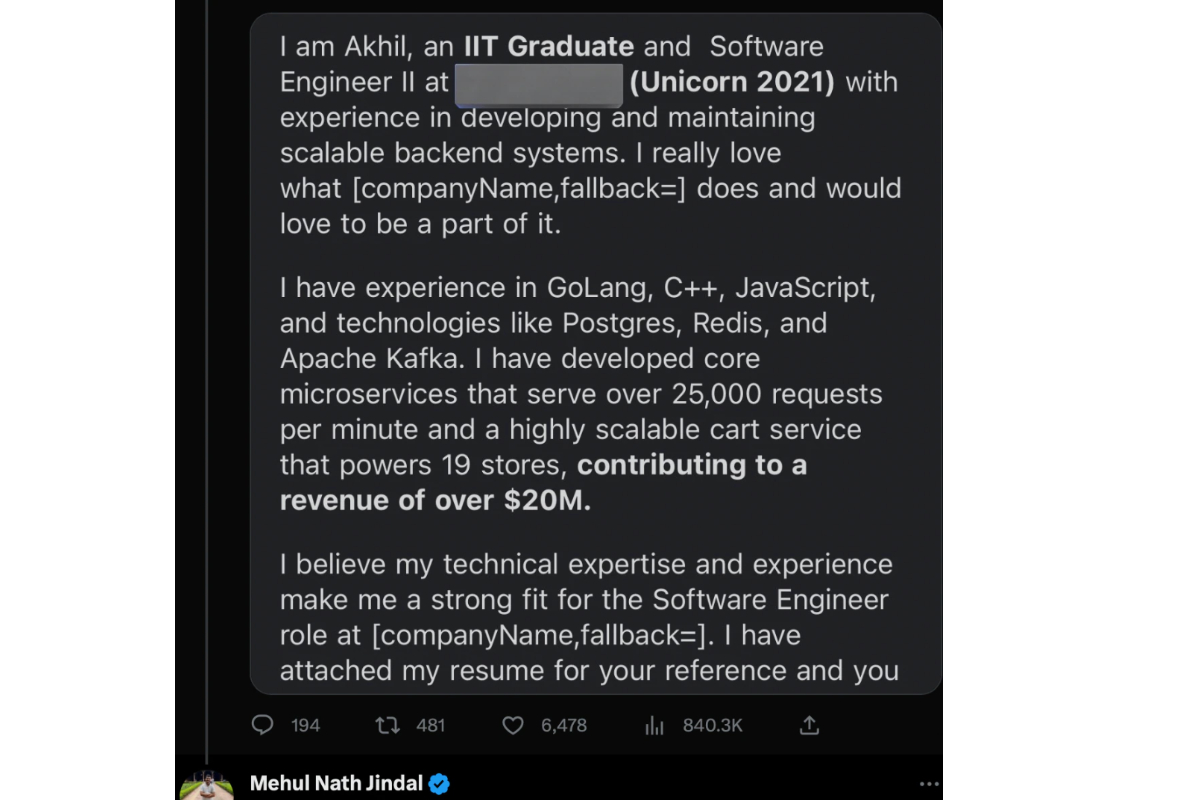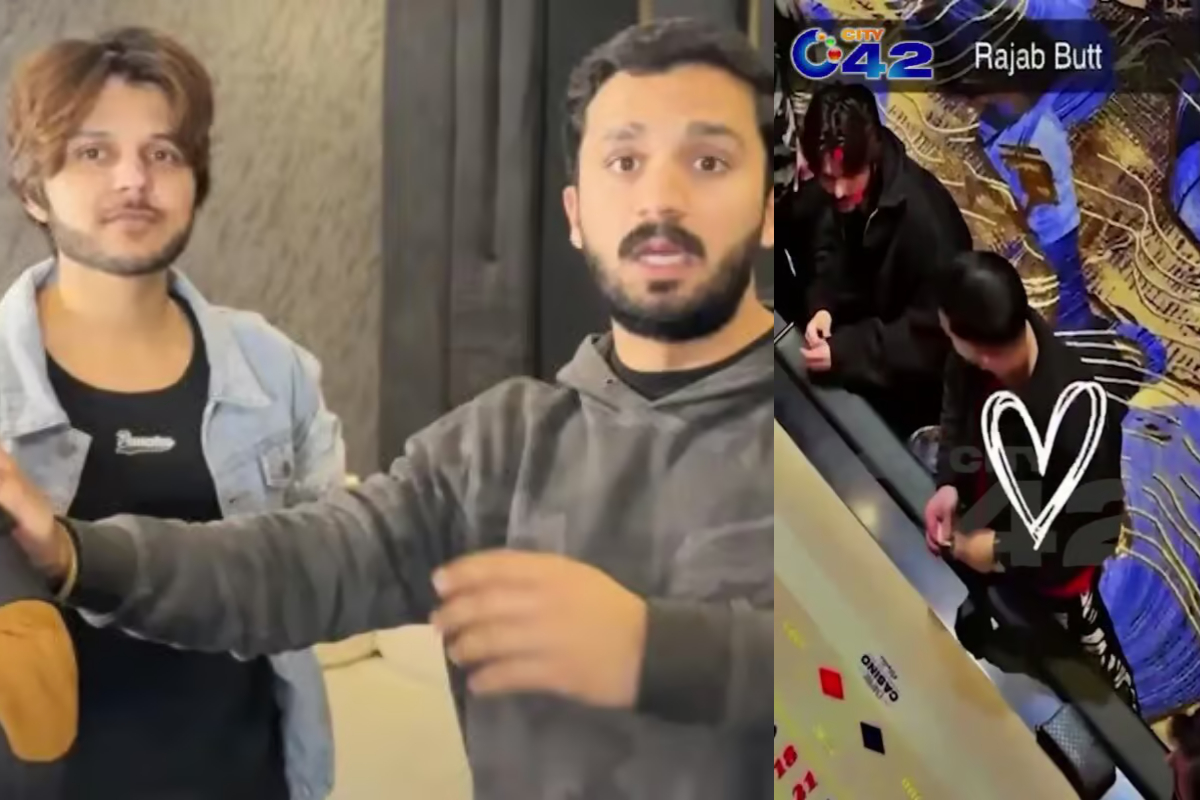- AI chatbots can be convenient, but they can also lead to embarrassing situations if not used properly.
- A Twitter user shared a screenshot of a job cover letter that neglected to mention the company’s name.
- The writer of the cover letter was an “IIT Graduate” and the mistake made them look foolish.
Artificial intelligence chatbots like Google’s Bard and Open AI’s ChatGPT have undoubtedly brought convenience to people’s lives.
However, they are not without their problems. One notable issue arises when individuals utilize these chatbots to write emails, assignments, or cover letters but fail to thoroughly review the generated responses, leading to embarrassing situations.
A recent incident highlighted this concern when a Twitter user, Leo (@4eo), shared a screenshot of a job cover letter. In this particular cover letter, the writer neglected to mention the company’s name and left the placeholder “[companyName,fallback=]” unchanged.
This blunder inadvertently exposed the fact that the individual was using an automated template for their cover letter. What made this mistake, even more, cringe-worthy was the claim that the writer was an “IIT Graduate,” adding to the embarrassment of the situation.
Hi,
IIT graduate Akhil
Your code didn’t work.
Sincerely,
[companyName,fallback=] pic.twitter.com/18vc0CnQkK
— Leo (@4eo) July 13, 2023
This tweet soon went viral with many people referring to the popular Hindi adage which says “Nakal ke liye bhi akal ki zarurat hoti hai”, this loosely translates to “even the copying requires commonsense”.
Commenting on this gaffe, a Twitter user wrote, “I guess they don’t teach how to copy-paste properly* in IITs huh.” Another person wrote, “Well if recruiters use this type of automation so can the candidates. I see nothing wrong with this except the fact that the code didn’t work.”
In April, a student gained significant attention when their careless copy-paste work from ChatGPT went viral. Justine Moore (@venturetwins) posted an image on Twitter, showcasing an essay submission on William Shakespeare’s play, Twelfth Night.
What caught everyone’s attention was the opening line of the essay, which explicitly stated that it was written by an “AI language model.” The teacher took notice of this and pointed out that the student needed to redo the assignment using their own words.





















